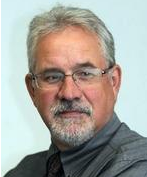
By Rick Holmes
Wicked Local
We are selective in the historical milestones we celebrate. The 50th anniversary of the Selma march was a big deal in March. The 150th anniversary of the end of the Civil War was barely noted. President Obama went to Selma, not to Appomattox.
Neither Obama nor any other American politician did much to mark the 40th anniversary of the end of the Vietnam War last week. We celebrate what we want to remember, and some wars we’d rather forget.
Forgetting history, though, can be dangerous.
I thought about the fall of Saigon a few weeks ago, when I grabbed for a half-used reporter pad from a stack in the corner of my office. My eyes lit on a quote from Henry Kissinger, the author of the second half of America’s Vietnam disaster.
“I have no regrets,” Kissinger said.
The notes were from a 2006 gathering at the JFK Library. A bunch of old Vietnam warriors and media figures had come together to talk about Vietnam, including Kissinger, Gen. Al Haig, who was Richard Nixon’s last chief of staff, JFK speechwriter Ted Sorenson, LBJ aide Jack Valenti, ex-network anchor Dan Rather and reporter Frances FitzGerald.
Some were still clueless after all those years, notably Kissinger and Haig.
“We defeated ourselves,” said Kissinger, whose appearance inspired a handful of pickets outside calling him a war criminal. Haig criticized “incrementalism” in U.S. Vietnam policies.
The Christmas 1972 bombing of North Vietnam “brought Hanoi to its knees,” Haig said. “If Nixon had continued with it for two to three months, Hanoi would have withdrawn.”
The topic of discussion was Vietnam, but Iraq was on everyone’s minds that day. Three years after George W. Bush’s invasion, the U.S. was in the middle of a civil war in a country its leaders didn’t understand. America was trying to establish a democratic government in a place that had never had one.
It was losing soldiers daily to an insurgency while trying to win hearts and minds. It was training a new Iraqi army to take over the fighting and allow the American troops to come home. The parallels were hard to miss.
The Iraq project wasn’t going well. A secular war was escalating between Sunnis and Shiites. Nine years later, Iraq is again falling apart at the seams, the Iraqi army fell apart at the approach of ISIS just as the South Vietnamese army dissolved in the face of an invasion from the north 40 years ago.
At the JFK Library event, the freshest, most relevant perspective came from Frances FitzGerald. She was the rare American journalist in Vietnam who took the time to know the Vietnamese. Her Pulitzer-winning book, “Fire in the Lake,” put the people whose country Americans were fighting over at the center of the story.
FitzGerald explained that, while we call it the Vietnam War, in Vietnam they call it the American War, which came after their Japanese War and their French War, just one phase in their centuries-long struggle to rule their own country.
The uncomfortable truth, FitzGerald said, was that “the war wasn’t ours to win or lose.” Haig was dead wrong about the Christmas bombing, she said. “The U.S. never destroyed the morale of the North Vietnamese.”
“For all their sacrifices,” FitzGerald said, “the American soldiers were largely irrelevant.”
Vietnam was always going to belong to the Vietnamese, and the hearts of the Vietnamese were with the government in Hanoi that had led the struggle to throw off the colonial yoke. The succession of rulers propped up in Saigon by U.S. muscle were corrupt, incompetent and doomed.
As Vietnam faded in the memory of an America eager to forget, that lesson was lost. So here we are again, attempting nation-building at the point of a foreign invader’s gun in Iraq and Afghanistan.
In Vietnam, America tried to keep one people separated into two countries, North and South. In Iraq, America is trying to hold a country created by colonial powers together despite the sectarian differences pulling it apart.
America’s humiliation in Vietnam should have taught us that the U.S. has neither the authority nor the ability to impose regimes or governing philosophies on other nations, even when our intentions are pure.
The Vietnamese tried to teach Kissinger that lesson. At the Boston conference, he said that, in private negotiations, North Vietnamese Prime Minister Pham Van Dong, told him, “We’re going to win because there are more North Vietnamese that are willing to die for South Vietnam than there are Americans willing to die for South Vietnam.”
It is widely accepted that Nixon and Kissinger could have made the same deal in 1969 for a ceasefire and withdrawal of U.S. troops they eventually agreed to in 1973. While they kept the war going, more than 22,000 Americans and hundreds of thousands of Vietnamese lives were lost.
Kissinger may have no regrets about that, but lots of other people do.
Rick Holmes writes for the GateHouse Media and the MetroWest Daily News. He can be reached at rholmes@wickedlocal.com. Like Rick on Facebook at Holmes&Co, and follow him on Twitter @HolmesAndCo.
This article originally appeared on Santa Rosa Press Gazette: The war we’d rather forget
